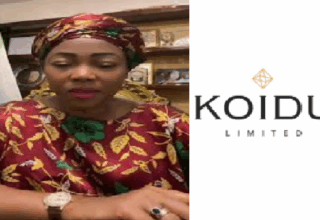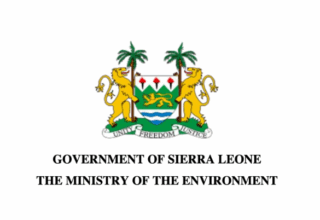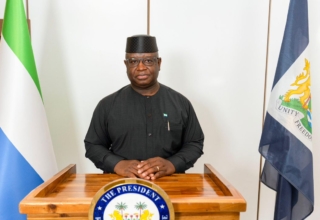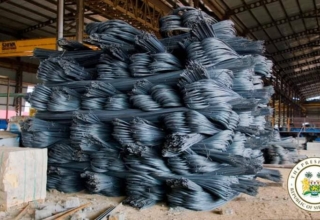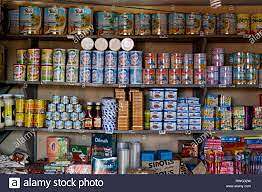
Strategic Communications Unit, Ministry of Information and Communications.
There has been a hue and cry over the steady increase in prices of essential commodities for which government has been subjected to intense rebuke by some sections of the public.
The opposition particularly has lost no time in making political capital out of the unbearable situation knowing fully well that being part of the global village we are experiencing our fair share of the global crisis caused by the Corona pandemic.
One factor that has and continues to be the major driver of commodity prices is the exponential increase in freight charges (fees charged by ships to bring goods into the country).
Cement, for example, is now in high demand across the world as Covid-19 gradually subsides. One metric tonne of cement at the moment is $50 but the fright charge is $70 and it keeps increasing.
Once the consignment arrives here, the importer will have to pay a host of charges at the port ranging from import duty to GST, port handling, among others, and then transport, labour, warehouse charge, etc all of which eventually end up being factored into the wholesale and retail prices respectively.
The freight charge particularly increased massively in July/August this year, becoming the greatest factor responsible for the continued increase in prices of essential commodities. Each time there is an increase in freight charges, there is a corresponding increase in the cost per bag of cement. Some countries are easily accessible while others are not. The longer the distance, in most cases, the higher the freight charge. Also, parts of the world where ships can go and get fully reloaded with cargo attract less freight charges because they can make profit. In the case of Africa ships mostly come and return empty therefore they charge more to recoup their losses. These ships for obvious reason will prefer going to countries that are easily accessible than coming to far away Africa including Sierra Leone.
As for rice, the price has gone up considerably in exporting countries mainly due to Covid restrictions and climate change effects that have badly affected productivity, compounded by rapid increase in freight charges. There is presently no import duty and GST on rice. But the importers pay other port charges, transportation, labour, storage, etc all of which get factored into the wholesale and retail prices. Our best bet as a nation therefore is to produce our own food which is why government has invested heavily in agriculture and is giving support to farmers nationwide.
There is also the issue of strict emission requirements. Ships that are unable to meet these requirements have gone out of service because penalties are heavy for violators. So the number of ships in operation has significantly reduced which means those that are operational charge more. On top of that, the construction of ships between July & August became very expensive as a result of the high cost of iron ore ($220 per metric tonne).
The other factor responsible for high freight charges is constant increase in global petroleum prices.
Government has no control whatsoever over freight charges or global commodity prices.
Comparative analysis in the sub-region shows that we are better off than our neighbours. In Guinea, for example, a bag of rice is 310 Guinean Franc (Le320,000) per bag for low quality rice. The situation is even worse in Liberia where they are now reporting shortage of rice talk less of increase in price.
In Sierra Leone, because of the visionary leadership provided by President Julius Maada Bio, we have not experienced any shortage of essential commodities as government through the Central Bank supported importers with 500 billion Leones loan on 7% interest rate compared to 30% at commercial banks for them to bring in and stock essential commodities.
It is expected that after COVID-19, freight charges will come down and government is determined to ensure that this reflects on prices in Sierra Leone.
Government has made series of interventions to remedy the situation starting with engagement with importers to ensure there is availability of products in the market. Non availability is worse and can lead to chaos. Most importers prefer not to risk importing goods and see government force them to sell at a price that will not enable them make profit. In such circumstances government steps in to engage the importers and assist them to import without hesitation.
Government controls price at wholesale level through the Ministry of Trade who always sit down with the importers to decide on realistic wholesale prices otherwise the worst will happen. Ministry of Trade officials ensure the importers provide proof of their expenditures including invoices/receipts of all transactions in the importation process of essential commodities based on which wholesale price is fixed. Such engagements have been done in recent times concerning cement and rice, among others.
Another form of intervention by government is the establishment of industries in different parts of the country to enhance productivity with various agreements having been signed with Investors.
We have stopped importing cooking oil because it is now produced here. We also produce our own flour.
Furthermore, government through the Trade Ministry is providing grant to agro-businesses to enable them produce local foodstuffs.
Government is presently working on an Essential Commodities Policy that is expected to come to fruition by the end of this year. Through this government will have some control over the production, importation and distribution of essential commodities in and around the country.
Other policies that have been formulated to make the trade environment conducive are the Cooperative Policy, Agro Processing Policy, and the National Trade Strategy

